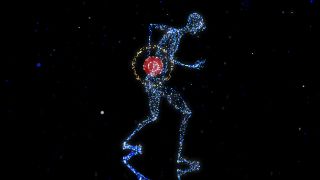Child Development
4 Ways to Connect With Your Authentic Self
Difficult childhood experiences can disconnect us from our psyche, or soul.
Posted May 30, 2023 Reviewed by Gary Drevitch
Key points
- Psychotherapy broadly translates to caring for the soul.
- Early childhood experiences in life can make us lose connection with our personal authenticity.
- We suffer when we live a life that doesn’t align with the deepest aspect of ourselves.

Psyche is derived from the Greek word psykhe, which broadly translates to soul or spirit. In the simplest sense, psychotherapy means tending to and caring for one’s own soul.1 While the idea of therapy being soul-medicine may feel abstract to some, many psychotherapists, psychologists, mental health counsellors, and psychoanalysts take this notion seriously within evidence-based, insight-oriented, and somatic psychotherapeutic traditions.
If this post is starting to sound weird, it may be because you’ve unconsciously internalized the current biomedical paradigm that dominates our healthcare system. Biomedical approaches in therapy suggest that the point of therapy is to fix a specific behavioural issue, engage in practical problem-solving around a troublesome thought pattern, and "treat" whatever is being viewed as an "issue." As a result, the deeper-rooted nature of negative psychological or psychosomatic symptoms is not fully acknowledged.
The cost of living a soul-less life
James Hollis, a world-leading Jungian analyst, discusses how the soul is our deepest sense of purposefulness in life; and how our souls let us know when we aren’t on the right path as we experience psychosomatic symptoms or meaninglessness, or suffer from intrapsychic tensions.2 These sentiments are shared by Gabor Maté, who frequently discusses how chronic stress, attachment wounding, unprocessed trauma, and the continuous sacrifice of childhood authenticity result in negative physiological health outcomes or chronic illnesses.3
Jung said it best: "The body is merely the visibility of the soul, the psyche; and the soul is the same psychological experience of the body. So it is really one and the same thing."4
Living a life that doesn’t align with your core life values or personal authority has significant and real consequences, as the mind, body, and soul are all interconnected. Jung, Maté, Hollis, and many attachment-observant therapists have demonstrated how many people learn to adapt to the needs of their primary caregivers in childhood rather than to their own needs. Survival adaptations—emotional repression, for example—can quickly become ingrained within the mind and body, as people learn that expressing emotions isn’t safe within relational environments.

Sacrificing feelings, gut responses, instincts, and other innate experiences can be an effective damage-limiting strategy to ensure survival in an emotionally phobic family of origin as a child. Unfortunately, over time, people typically over-identify with adaptations, and what was meant to be a contextual, specific response to a threat becomes ingrained and enmeshed within all areas of one’s life. This means that individuals are living their lives with aspects of their authenticity repressed or sheathed, wrestling to find expression. For some people, it can take years or even a lifetime to realize they may be unconsciously embodying the unlived life of a parental figure, and thus struggle with self-defeating patterns due to reliving childhood patterns, attachment distress, or developmental trauma.5
Thankfully, we can learn how to deeply listen to the innate wisdom of soma (the body) and psyche (soul)—which are really one and the same. The soul is difficult to describe in rational language or concrete words, as it is fundamentally a felt sense and embodied experience. The soul often communicates to us through emotional insights and physical sensations. Many describe the soul metaphorically, such as following an inner compass or experiencing a light within. People who experience a moment of being connected to their soul often describe feeling safe, grounded, and well-regulated and have an inner experience of self-transformation. Richard Schwartz, the founder of internal family systems therapy, identifies the soul as the "Self" with the following experiential qualities6:
- Curiosity
- Compassion
- Clarity
- Connectedness
- Creativity
- Courage
- Confidence
- Calmness
How to connect to your inner life
- A beginning step is to attune to your own inner resonance and explore what experiences in life foster an inner sense of "rightness" as indicated by your feeling world.
- It may also be time to tend to an inner "frightened child" who has a complex history of adaptation that lives on through you in present-day life. For some, this may mean it’s time to reach out to a qualified insight-oriented, psychodynamic, and/or somatic-oriented therapist. For others, it may simply require more compassionate self-inquiry—a conscious effort to engage with mystery as it presents itself to you—and to accept full responsibility for your life.
- Learning to open yourself to something greater that needs to find expression can be life-changing. Developing a relationship with the deeper aspects of your personality is a heroic task. However, many people find dream analysis, expressive arts, meditation, and other embodied practices helpful to assist with this quest for authenticity.
- Something within you will know the direction you need to pursue, and to move forward, you must listen to this guidance from within.
To find a therapist, visit the Psychology Today Therapy Directory.
References
Moore, T. (2021). Soul therapy: The art and craft of caring conversations. HarperOne.
Hollis, J. (2018). Living an examined life: Wisdom for the second half of the journey. Sounds True.
Mate, G. (2022). The myth of normal: Trauma, illness, and healing in a toxic culture. Alfred A Knopf Canada.
Jung, C. (1997). Jung’s seminar on Nietzsche’s Zarathustra: Abridged edition. Princeton University Press.
Shedler, J. (2010). The efficacy of psychodynamic psychotherapy. The American Psychologist, 65(2), 98-109.
Schwartz, R. (2021). No bad parts: Healing trauma and restoring wholeness with IFS. Sounds True.


